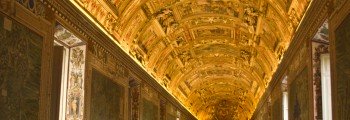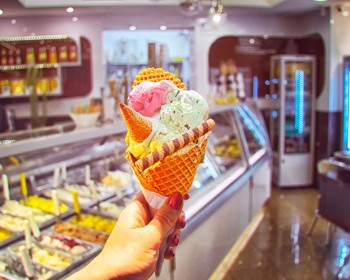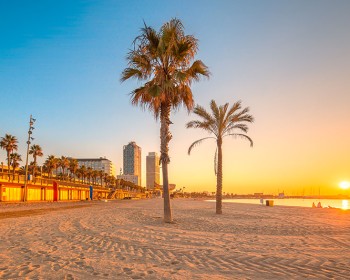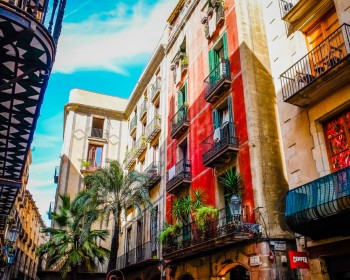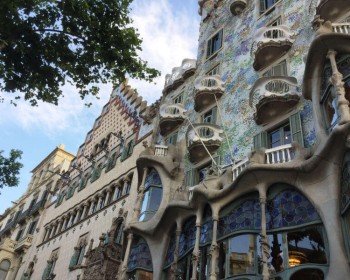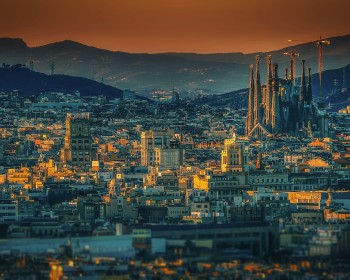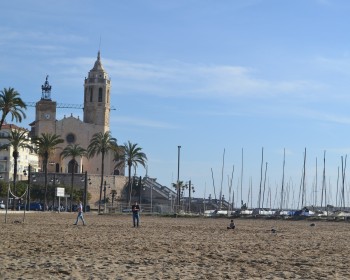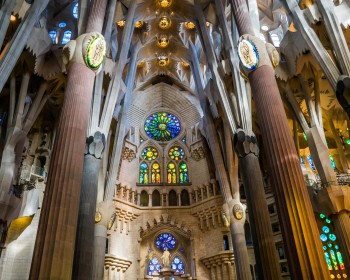While walking around Barcelona, you might bump into several graffiti with a swastika. The city also houses a famous neo-Nazi bookstore right in the middle of the city. Antisemitism is very widespread in Spain. Even though episodes of physical violence are pretty unusual, prejudice and stereotypes linger all over the country.
So, being a Jewish man in Barcelona (hoping not to have violated any copyright) might be tough. Actually, one of the most dynamic Jewish communities in Spain lives here. Moreover, Barcelona's Jewish ghetto is both one of the most beautiful areas and one of the most popular touristic destinations in the whole city.
Located in the middle of the Gothic Quarter, the Jewish Ghetto is also known as El Call. It is the name of the old Jewish settlement in the North-Eastern part of the old Roman city of Barcino, dating back to XII and IV centuries. However, very little of the original quarter is left. The origin of this name is a little controversial. It recalls the Hebrew word kahal, which means congregation and this perfectly reflects the spirit of deep unity this community holds. It also reminds the word calle, which means lane in Spanish. It was used for the narrow streets in the two areas of Call Major and Call Menor, respectively its bigger part inside the ancient Roman walls and the smaller outside. The Call Menor was designed late after, when the population of the district had grown and the neighborhood was too small to contain it all. However, very little remains of its old shape. After the massive expulsion of the Jews in the Middle Ages, lots of its religious buildings were converted into churches or convents and many streets ceased to exist.
The Ghetto has never lost its spirit, by the way. Exile, oppression and diaspora did not let it down. Judaism here is stronger ever. Full of historical and artistic beauties, it is one of the best touristic attractions in town. One of the most fascinating might be the Sinogoga Major de Barcelona, in the very core of the district. It is the oldest synagogue in Spain and one of the oldest ones in Europe. Here no regular services are held today, but sometimes it is still used for special ceremonies. Reopened to the public only in 2002, it has Roman foundations and is thought to have somehow existed since the V century. There are also four active synagogues and an old, famous kosher store.
The district is full of Medieval buildings, erected right above the Roman ruins. It is feels just like walking through history as you go up and down it. You could also be interested in seeing the remains of the Jewish public baths in the basement of the pleasant Café Caleum. This could be really interesting, if you feel like both exploring and relaxing. In fact, today a wellness center has been built right below the ancient walls of the former Roman Baths. It has four pools, aromatherapy showers and different kinds of baths. You may also float in a saltwater pool, with amphoras and brick arches all over. You will feel like emperors, literally.
After this brief overview, the time has come to tell you a Jewish tale in Barcelona.
The history of Jews in Barcelona is long and tangled. It dates back to the Middle Ages, when the Jews played an active role in Barcelona’s economic and mercantile life and contributed to keep its leading status on the Mediterranean Sea. The relationship between Christians and Jews was also pretty good. Everything was going well… Too well, perhaps. In fact like all the best love stories, the one between Barcelona and its Jewish population had no happy ending. Things started deteriorating since XIII century, when several measures were taken to curb Jewish commercial activity and the ghetto was attacked a few times. Then when the Black Plague spread in the mid-1300s, the Jews were accused of the disaster and became targets of religious and political persecution. This triggered a long period of racial cleansing and by the end of the century, thousands of them had already been either coerced into Christianity or sentenced to death… When you are free to choose between something and death, you know.
After the discovery of America, an edict of expulsion literally delivered all the Jews in exile to New Land. For nearly 500 years, not a Jew was seen in Spain. Only in 1924, they were called back in Spain and were even given the opportunity to apply for Spanish citizenship. The number of Jews settled in Barcelona started growing and kept on increasing since then. Today, Spanish Jewish community is one of the most varied and lively in the whole Europe.
Barcelona was the first city to welcome back a Jewish community after its exile abroad. The rebirth of Jewish life here is simply fascinating. Barcelona's Jews are really strong. Even though there is a long way to go before they can take back both the confidence and the trust they once owned, their dedication and entrepreneurial spirit are absolutely remarkable.
To try and compensate the expulsion of their ancestors, the Spanish government started to restore old Jewish districts all over the country. Centuries of exile recompensed by embellishing the streets. Okay. Still better than nothing, by the way. The thing is that they wanted to pursue this aim without the participation of the Jewish community. This could work for most of those districts where no modern Jewish communities lived, but not for Barcelona. The city hosts one of the oldest communities in Spain. It was quite illogical to restore an entire area without involving its own inhabitants. If the aim was to make the Jewish community feel like home, this was a very strange way to achieve it.
Other issues have raised between the community and the local government because of the Jewish cemetery in Montjuïc, which not for no reason means Mountain of the Jews in Catalan. The hill owes its name to an old Jewish Cemetery, whose ruins are still visible nowadays. Then, an important Christian cemetery was built on its grounds. When 500 medieval tombs were discovered, the Jewish community laid claim to it. Anyway, the municipal power did not accept the motion. So Barcelona's Jews started a long struggle against further constructions, till Catalonia recognized the cemetery as an official Jewish heritage in 2007.
Despite struggling with matters of visibility and a quite undeniable antisemitic general feeling, the Jewish community feels completely at ease in Barcelona. The idea is that we ought to be Jews at home, and Europeans in the street, said a representative of the community once. This might explain quite well why they do not feel rejected, even after all they have been through. They just want to be treated like anyone else and will not give up until this goal will be achieved. There has to be some lesson to learn from that.
